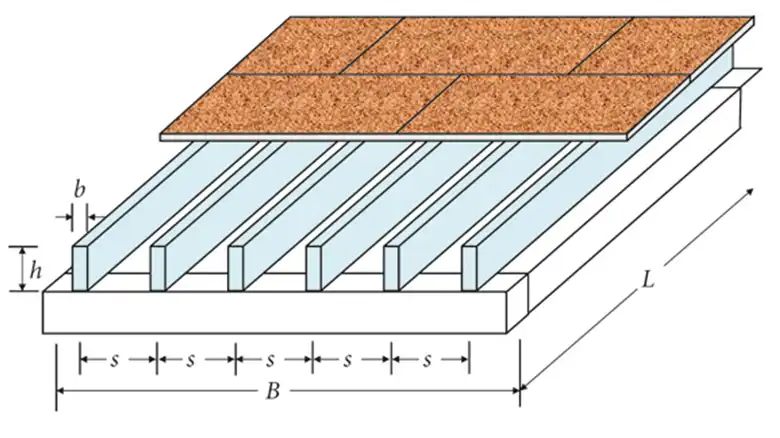Basement floors are essential to any underground structure, providing a sturdy and stable foundation for the rest of the building. The thickness of basement floors can vary depending on various factors, including the type of material used, the load-bearing capacity required, and the specific needs of the construction project. However, basement floors are typically between 4 and 6 inches thick, with some thicker designs depending on specific needs.

What Factors Determine the Thickness of a Basement Floor?
The thickness of a basement floor is an important factor in ensuring its durability and ability to support the weight of the structure above it. Several factors can influence the required thickness of a basement floor, including soil conditions, intended use, and the materials used in construction. Now, we will explore some key factors affecting basement floor thickness.
Factor 1: Load Capacity
The thickness of a basement floor depends largely on the load capacity it is required to bear. A thicker basement floor is needed if heavy equipment or vehicles operate on it.
Factor 2: Soil Conditions
The basement floor’s thickness also depends on the soil conditions of the area. If the soil has a low bearing capacity, a thicker basement floor will be required to provide adequate support.
Factor 3: Building Codes
Building codes set minimum thickness requirements for basement floors based on the building’s location, size, and intended use. Compliance with these codes is essential for the safety and stability of the building.
Factor 4: Type of Concrete
The type of concrete used for the basement floor can also impact the required thickness. For instance, high-strength concrete may allow for a thinner floor than standard concrete.
Factor 5: Water Table
The basement floor may need to be thicker if the building is located in an area with a high water table to prevent water from penetrating and causing damage to the foundation of the building.
Factor 6: Climate
The area’s climate can also play a role in determining the thickness of the basement floor. In areas with freeze-thaw cycles, thicker floors may be required to prevent damage from the expansion and contraction of the concrete.
Factor 7: Future Use
The future use of the basement can also influence the required thickness of the floor. A thicker floor may be needed for added insulation and soundproofing if the basement is used for storage or as a living space.
Factor 8: Budget
The construction cost can also play a role in determining the thickness of the basement floor. A thicker floor will require more materials and labor, which can increase the cost of construction.
Important Note: Ultimately, the thickness of a basement floor will depend on a range of factors and should be determined through careful evaluation and analysis by a qualified professional.
Frequently Asked Questions and Answers
Should I reinforce my basement floor with steel rebar?
Reinforcing a basement floor with steel rebar can help increase its load capacity and durability, which is recommended for some applications. Consult a professional engineer to determine if this is necessary for your project.
What is the best type of concrete to use for a basement floor?
The best type of concrete for a basement floor depends on the intended use of the space and the load capacity required. Consult with a professional engineer or concrete supplier to determine the best type of concrete for your specific project.
What is the benefit of a concrete floor in a basement?
Concrete floors are a great basement option because they offer many benefits, such as beautiful design options, durability, eco-friendliness, and low maintenance. Due to the need for more durable and resistant flooring in basements, concrete is an ideal choice.
Conclusion
It is important to note that the thickness of basement floors is an essential aspect of building construction. The thickness of the basement floor can vary based on several factors, such as soil type, water table, intended use, and the material used. It is crucial to comply with building codes and regulations to ensure the basement floor is safe and stable. Understanding the factors that influence basement floor thickness and the appropriate thickness required for specific applications is necessary to ensure the building’s foundation is strong and durable.




